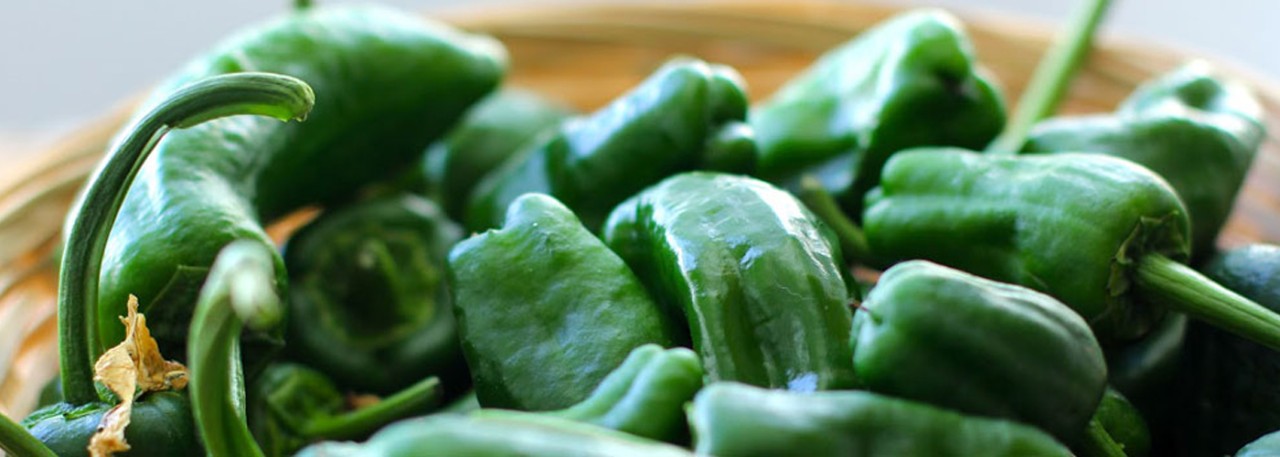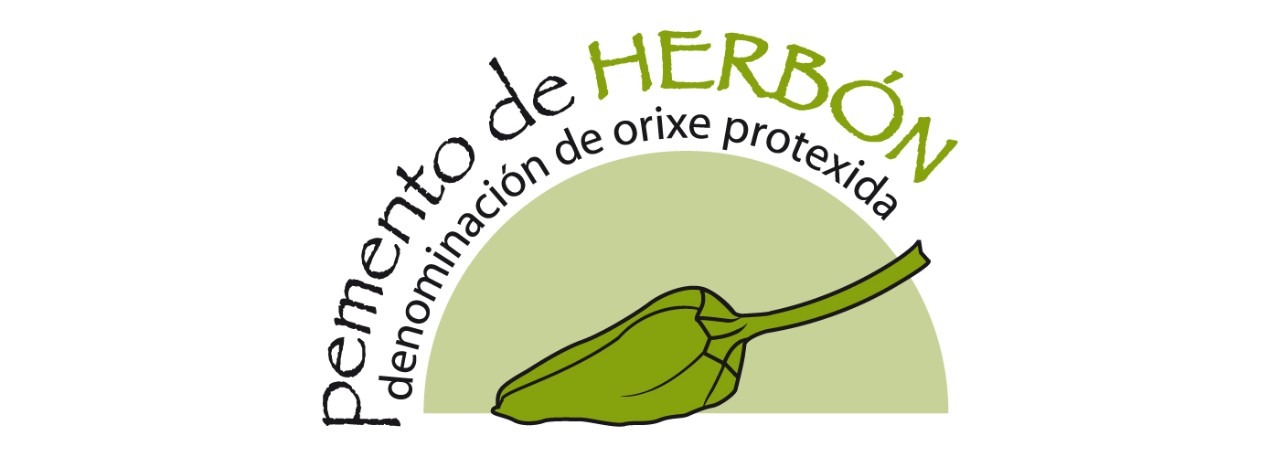.png.transform/rendition-xs/image_image%20(1).png)
Pemento de Herbón PDO
Fruit belonging to the Solanaceae family, species Capsicum annuun, L, commercial variety "Padrón" and local ecotypes of this pepper, provided they are from plots inscribed in the appropriate register, managed by the controlling body.
Tasting notes
The skin is smooth, shiny and a pale light green in color. To taste, it has a moderately intense aroma, a sweet flavor, and can be slightly hot.
Other notes
Seen lengthways, it has a conical or cylinder shape, is slightly wrinkled, with three or four cavities marked at the tip.
They usually weigh between 3.5 and 4.5 g / 0.12 and 0.16 oz each.
Fruit length is between 3.5 and 5.5 cm / 1.38 and 2.17 in.
The diameter at the base varies from 1.5 to 2 cm / 0.59 to 0.79 in.
Stem length is between 3.5 and 6 cm / 1.38 and 2.36 in.
Thickness of the wall or flesh: 0.06 in approximately.
Ratio fruit weight/seed weight: an average of 3.2.
Production / Processing method
The nursery plants come from authorized producers inscribed in the appropriate register. Seed bed preparation and sowing are begun in October and continue throughout November, December and January. Planting out in greenhouses is done in February, March and April, and harvesting starts in mid-May. Outdoor planting is done during May and June.
Planting density in greenhouses is 2-4 plants per yd2, and support canes are often used. Outdoors, density is 3-5 plants per square yard. As a rule, the maximum permitted yield is 9.9 lb/ yd2 outdoors and 13.2 lb/ yd2 in greenhouse.
Picking is done manually and starts when the physical, chemical and organoleptic properties of the fruit are at their height. Picking is carried out in as many waves as may be necessary to obtain high quality fruit, using the materials and human means required to prevent the product from deteriorating.
The peppers must be packed in the established geographical area, which is a decisive factor in protecting the product's special features and its quality.
Geography / Relief and climate
The mild temperatures and scarce differences in temperature, as well as the soil in this area, have a direct impact on its morphological and organoleptic properties, particularly on the color, the fruit to seed weight ratio and the low level of capsaicin in its flesh. The soil and climate in these valleys provides the peppers with the ideal conditions and they are very adaptable to being grown in small plots of land. As they are fairly labor intensive, they have enabled the region's rural population to thrive.
Regulatory Council
Consejo Regulador de la DOP Pemento de Herbón
Calle Dolores, s/n
15900, Padrón (A Coruña) Galicia
Tel: (+34) 981 810 404 / 881 997 276
info@pementodeherbon.com
www.pementodeherbon.com/
Sources:
- Spanish Ministry of Agriculture
When they are picked in a early stage the percentage of spicy substances (called "capsaicin") is very low.


- /content/dam/en/icex-foodswines/images/products/fruits---vegetables/pemento-de-herbón-pdo/Pemento%20de%20Herbón%20PDO%20carr1.jpg
- /content/dam/en/icex-foodswines/images/products/fruits---vegetables/pemento-de-herbón-pdo/Pemento%20de%20Herbón%20PDO%20carr2.jpg

Padrón (Galicia)
